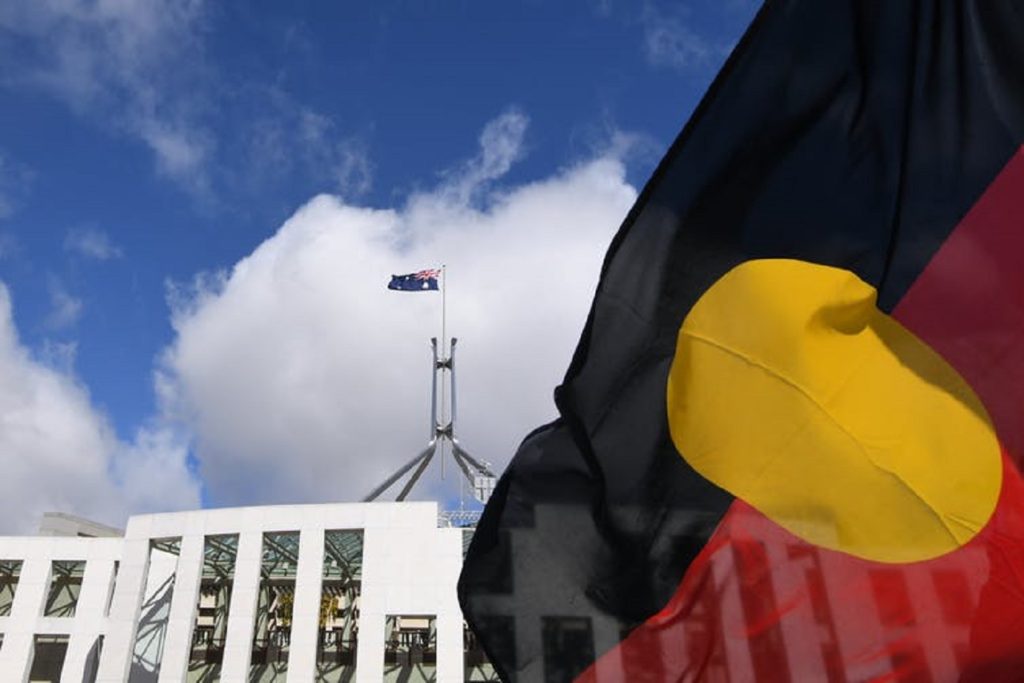One year ago, Australians were asked a question about a proposed change to Australia’s Constitution: “To alter the Constitution to recognise the First Peoples of Australia by establishing an Aboriginal and Torres Strait Islander Voice. Do you approve this proposed alteration?”
More than 9 million Australians said “No”.
Following the failed referendum to establish an Indigenous Voice to Parliament 366 days ago, Prime Minister Anthony Albanese said he was and would continue to be “ambitious” and “optimistic” for Australians to be “the very best version of ourselves”.
“This moment of disagreement does not define us,” the Prime Minister said the day after the vote. “And it will not divide us. We are not Yes voters or No voters. We are all Australians.”
First Nations communities were deeply hurt by the outcome of the Voice to Parliament referendum, and continue to feel the effects of division, racism and silencing around the country.
Whilst significant Indigenous leaders and politicians have sadly stepped away from leadership roles in the last year, there have also been some positive steps taken by governments across the country.
Here’s what has happened since the referendum vote, one year on.
How are Indigenous communities feeling?
On October 14 2023, more than 60 per cent of Australia’s voting population voted against establishing an Indigenous Voice to Parliament, one of three pillars that constitute the Uluru Statement from the Heart.
Reflecting on the failed referendum with Clothing the Gaps, an Indigenous-founded clothing brand and social enterprise, many felt the message that voters sent wasn’t political: it was personal.
“The whole saga was traumatic,” one Indigenous woman told Clothing the Gaps. “It was like living back in the past, as if all the progress we thought we had made had just evaporated.”
“It was more than a vote,” another Indigenous person reflected, “it felt like being told that we still don’t belong here.”
Racism and division in Australia has certainly ramped up since the referendum: a report from November last year found social cohesion in Australia is at its lowest level on record. The report from the Scanlon-Monash index found the decline of Australians’ sense of social inclusion and justice was the largest factor in lowering the level of social cohesion.
One Indigenous community member told Clothing the Gaps: “The level of racism in this country is astounding, as is the level of ignorance. I’m 57, and I’m tired.”
How are Indigenous leaders feeling?
Since October 14 last year, many prominent Indigenous leaders, including Noel Pearson, Marcia Langton and Thomas Mayo took a step back from the limelight to grieve and process the loss.
But Indigenous community leaders are committed to pursuing justice, equality and a voice for First Nations Australians.
Writing an editorial piece in Guardian Australia over the weekend, Professor Megan Davis, co-chair of the Uluru Statement From the Heart, said the disappointing result of the referendum last year “won’t define Indigenous policy forever”, and failure is “incontrovertibly a normal part of the political cycle”.
“If voting sentiment for one specific proposition has blanket application to all future non-related or tangential things, what’s the point of voting?” Professor Davis wrote.
“The republic movement lost at referendum to an even greater degree than the voice but there is no public discourse as to its evisceration from Australian aspirations for future structural change.
“Indeed no one said to the Australians that voted yes to a republic that they can never aspire to, or talk about, a republic again.”
The Uluru Statement From the Heart held a webinar over the weekend to mark one year since the referendum. Professor Davis’ co-chair, Pat Anderson, asked people to “stay true to Uluru” and to not give up the fight.
“There’s a real opportunity here to actually turn Australia into an authentic Australian nation,” Anderson said, “with people who are proud and respectful and acknowledge each other, and can go forward with all the energy that we have in this country and all the resources that this wonderful country has to offer to us.”
What are governments doing?
Prime Minister Anthony Albanese is yet to acknowledge the one year anniversary of the referendum, and the Labor government has been relatively silent on its plan forward in the wake of the No vote.
Over the last 12 months, key Indigenous Labor politicians who worked closely on the referendum have stepped down from their duties, including former Indigenous Affairs minister Linda Burney, and Senator Pat Dodson.
Linda Burney has been replaced by Senator Malarndirri McCarthy, who was a prominent voice in the Yes campaign last year.
Meanwhile, there have been glimmers of positive progress regarding voice, treaty and truth for Indigenous peoples in state governments.
The Victorian government has continued its truth-telling Yoorrook Justice Commission, after delivering its first report into Victorian child protection and criminal justice systems in 2023. The Yoorrook Commission is calling for all Victorians to make a submission before November 22 this year, before its final report is expected in 2025.
Recently, the NSW state government announced its commitment to a treaty process with Indigenous Australians. Premier Chris Minns appointed three Treaty Commissioners – Aden Ridgeway, Dr Todd Fernando and Naomi Moran – to conduct a 12-month consultation process with Aboriginal and Torres Strait Islander communities. The process will learn of Indigenous peoples’ desire for a treaty and to develop an idea of what that might look like.


